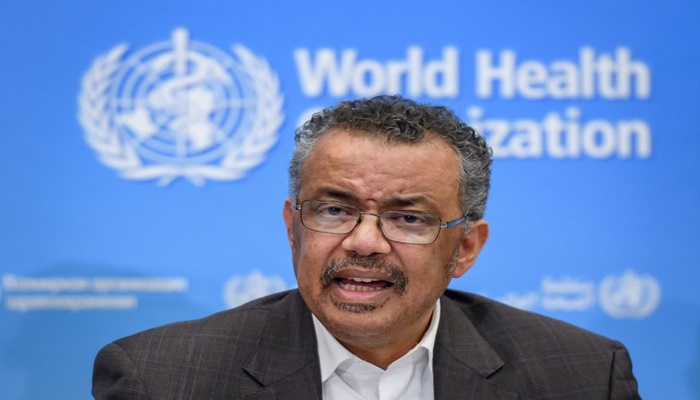
The World Health Organisation (WHO) says the number of confirmed Coronavirus (COVID-19) cases in Africa is now over 187,800 while the global cases are now over seven million.
The WHO Regional Office for Africa in Brazzaville, Congo, gave the update on Tuesday on its official twitter handle @WHOAFRO.
“There are over 187,800 confirmed COVID-19 cases on the African continent – with more than 82,400 recoveries and 5,100 deaths,’’ it said.
WHO said that South Africa, Nigeria and Algeria had the highest reported cases on the continent.
According to the organisation, South Africa has 48,285 cases and 998 deaths, followed by Nigeria with 12, 486 confirmed cases and 354 deaths, while Algeria has 10,154 confirmed cases and 707 deaths.
WHO said that Lesotho, Seychelles and Gambia were countries currently with the lowest confirmed cases in the region.
It said Lesotho had only four confirmed cases with zero death, Seychelles had 11 reported cases and zero death, while Gambia recorded 26 confirmed cases also with no death.
Meanwhile, the Director-General of WHO, Dr Tedros Ghebreyesus said almost seven million cases of COVID-19 had been reported to WHO, and almost 400,000 deaths.
He said contact tracing remained an essential element of the response for COVID-19, polio and Ebola.
“In some countries, there is already a strong network of health workers for polio who are now being deployed for COVID-19.
“Last week we published guidance that describes how existing polio surveillance networks can be used in the COVID-19 response.
“We outlined the measures that should be put in place to maintain an effective level of surveillance for polio,’’ Ghebreyesus said in statement posted on the agency’s website,
According to him, WHO has also published new guidelines on the use of digital tools for contact tracing; many digital tools have been developed to assist with contact tracing and case identification.
“Some are designed for use by public health personnel, like WHO’s Go.Data application, which has been used successfully to trace contacts during the ongoing Ebola outbreak in DRC.
“Others use GPS or Bluetooth technology to identify those who may have been exposed to an infected person.
“And still others can be used by people to self-report signs and symptoms of COVID-19.
“As part of a comprehensive approach, digital contact-tracing tools offer the opportunity to trace larger numbers of contacts in a shorter period of time, and to provide a real-time picture of the spread of the virus.
“But they can also pose challenges to privacy, lead to incorrect medical advice based on self-reported symptoms, and can exclude those who do not have access to modern digital technologies.’’
The director general said more evidence was needed about the effectiveness of these tools for contact tracing.
“We encourage countries to gather this evidence as they roll out these tools, and to contribute that evidence to the global knowledge base.
“We also emphasise that digital tools do not replace the human capacity needed to do contact tracing,’’ he said. (NAN)






